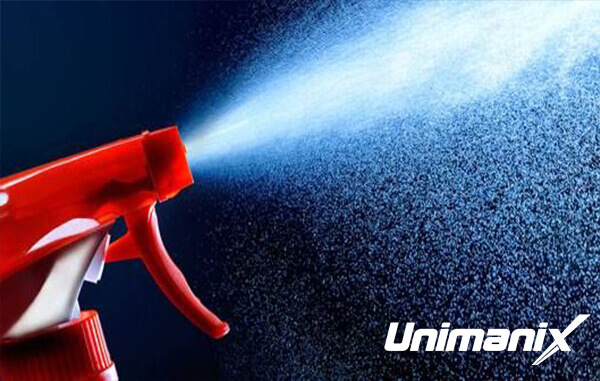Managing chemical overspray properly starts by determining where overspray will land. More importantly, this consideration should be a requirement for all types of pressure washer jobs, whether it's for commercial or industrial applications using chemicals and even for those just using water. Once when overspray is determined, the next step is how to protect those surfaces in the best way.
The following is a brief guide to help you better prepare for your pressure cleaning job when using chemicals.
Assess Weather Conditions
To protect property and other surfaces from spray carried by the wind, you will need to cover those surfaces with a tarp or canvas. Wind direction can change instantly. You may want to reconsider not pressure washing during windy days and when there are employee shift changes.
Most property damage happens during hot days.
It can be tempting to use thin transparent plastic because it's affordable, but this type of material is usually not the best option. Using plastic cover along with the hot summer sun, will trap heat and moisture and will increase the temperature, killing the plants you intended to protect.
Ideally, it is best not to cover plants altogether. Or, better yet, wait for cooler days. However, if you need to pressure clean on hot days, it is safer to use a blue, brown, or green tarp.
Understand Chemicals Used
For a power washer contractor or for an employee about to take on a commercial cleaning job, priority is to create a safe environment for every job. And it starts by being prepared for the unexpected and knowing everything there is to know about the chemical product used with water.
Take, for example, anything that is corrosive or coating, like a sealer, as this poses the biggest threat to health and property. Before you begin the pressure cleaning job, have a sound understanding of the chemical you plan on using. Anything like a strong acid or caustic solution will create a chemical reaction that can cause irreparable damage. It is essential to be knowledgeable about the proper use of chemicals, and the risks inherent in its use.
Account for Your Surroundings
Using the forces of water does come with consequences if you are unprepared or inexperienced with power washing. The goal here is to protect people, pets, and plants.
Every commercial cleaning project has its challenges. And, every job that needs to use a power washer starts with a site evaluation, taking into account where the cars are parked and the location of the statues, pavers and even siding. Take particular care with siding as it can be easily damaged, and you may end up needing to replacing it.
Grass and Plants
The best method to protect grass and plants when using chemicals during pressure washing is the pre-wet and post-wet method. Before you begin the cleaning job, soak the siding, grass and plants with water, immediately apply the chemicals, and then immediately rinse the siding, grass, and plants with water again.
This method protects the plants. When the grass and plants are not thirsty because they’ve had plenty of water, they will not absorb the wash water or the chemical. The chemical will lay on the surface. Rinsing the chemicals off with water before the chemicals have a chance to dry prevents the grass and plants from being damaged.
Water Is Key
For any chemical use, the best way to manage overspray is with water.
Based on the size of the pressure cleaning job, you may need to have more than one person watering at the same time the soap or chemical is applied. Using water to wash the nearby plants is a critical step as it helps to reduce the ppm (parts per million) dilution of soap or chemical that runsoff towards the vegetation.
For Commercial Cleaners
For commercial cleaners, there are additional factors to consider when cleaning government office buildings, storefronts, hospitals, and other types of large buildings.
Begin the project by discussing with the facility manager about the pressure cleaning job and what to expect. For added precaution, set-up the job site with visible warning signs, like hazard symbols and caution tape. Traffic cones are perfect to help guide foot circulation away from wet areas and prevent slips and falls.
Take a tour of the facility. Know the location of the HVAC intakes and take account of how weather conditions, especially wind, will affect overspray. Have a contingency plan. Also make sure that every pressure washing job is compliant regarding soaps and chemicals used, with safety data sheets always available and up to date.
In summary, to eliminate overspray, take the time to understand your location, including safety and precaution elements for you and the job site and work during optimal weather. These should be the goals for all professional contractors.
Unimanix Industries
Choose the best best industrial, portable electric pressure washer Unimanix has been manufacturing durability since 1993, with features that can handle the challenges of any pressure washing job. Whether it is to design, install, build a complete washing facility or customise a trailer for mobile pressure washing services, Unimanix is committed to meeting your exact needs. Proudly serving Quebec and Ontario. Made in Canada.
